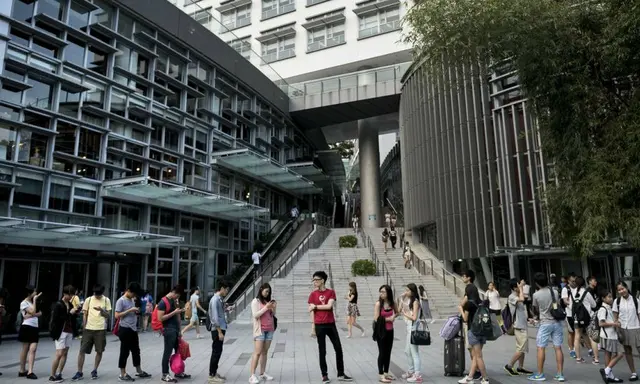Hong Kong’s publicly-funded universities need to be more international as 76 per cent of non-local students enrolled in the eight institutions in the last academic year were from the mainland, the city’s official auditor said on Wednesday.
In its latest report, the Audit Commission also raised concerns about expenses claimed by the government’s university affairs adviser, the University Grants Committee (UGC). Spending on inviting academics from overseas grew fourfold from HK$3.9 million in 2005-06 to HK$16.2 million last year.
“Internationalisation is not the same thing as encouraging mainland students to study in Hong Kong,” the audit report cited the UGC as saying in a 2010 higher education review.
“The [UGC] should further encourage universities to ... attract more non-local students, in particular those other than mainland students.”
The auditor found only 3.9 per cent of enrolled students at the eight local public universities were non-local but not from the mainland in the 2015-16 academic year.
The Education University and Baptist University had the lowest percentages of such students, accounting for only 0.3 and 0.7 per cent respectively. The University of Science and Technology had the highest with 8.4 per cent.
A government policy limits intake of foreign students to 20 per cent after public universities have filled their quota of local undergraduate places. There is no limit on non-local students for postgraduate programmes.
Professor Cheng Kai-ming, a former senior manager of the University of Hong Kong, said the auditor had shown its “ignorance of the international scene” where mainland students accounted for the majority of overseas students in many universities across the world due to the sheer size of China’s population and Chinese people’s increasing education expectations and aspirations.
Cheng added that mainland students’ academic performance often outshone that of other overseas students.
An EdU spokesman said the university mainly provided education programmes designed for seeking a teaching qualification in Hong Kong, which might not attract overseas students, while Baptist University said it had too few dormitory places to offer foreigners. Mainlanders commonly rent accommodation off campus.
Regarding UGC’s meeting expenses, the audit examined 2,402 hotel nights for visiting academics at a total cost of about HK$4.4 million, with daily rates ranging from HK$1,430 to HK$3,300. The officers found all the quoted rates were from the same five upmarket hotels.
As of June, the committee had 12 non-local members and 193 non-local subcommittee or working group members. Many were scholars from renowned institutions such as the University of Cambridge in the UK and Stanford University in the US.
The auditor also found non-local members could get their spouses’ business class air tickets partly covered by the UGC – further raising travel expenses.
The auditor urged the UGC to explore cheaper alternatives that were acceptable to non-local members and consider other classes than business for short flights.
The UGC and the Education Bureau suggested the spending was justified on top scholars from around the world.
(SOUTH CHINA MORNING POST)
 简体中文
简体中文

